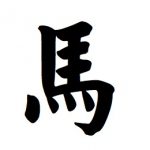
The writing on the “Great” Wall
It is common knowledge that today one of the keys to expanding business is physically and virtually tapping into the vast market potential in China. But how do you do it if you don’t speak the language, how “simple” is it? The first step to scaling the Great Wall of the Chinese culture lies not necessarily in knowing the language, but in knowing which language, Simplified or Traditional Chinese, to localize your products and services.
Traditional Chinese is one of the oldest writing systems still in use today, made up of about 54,000 elements of which 3500 are used on a daily basis to understand 99% of written texts. Traditional Chinese has remained in use, relatively untouched for thousands of years despite the complexity of the characters.
In 1956, Mao Zedong, the founding father and 1st Chairman of the People’s republic of China and Chairman of the Communist Party decided to to make a radical change to simplify and uniform the nation’s language: a simplified system of characters substituted the traditional becoming the official written language of the Republic.
Is a Simplified Chinese horse a horse?

Drastic simplification was made in both number of strokes and the speed in which it takes to write a character obvious in the character for horse mǎ, changed from the Traditional Chinese 馬 to the Simplified Chinese 马.
Even with the reforms to this antique writing system, the traditional characters are still used in Taiwan, Hong Kong, and Macao; territories that were not part of the Republic, while simplified Chinese is used in Mainland China and Singapore.
Good localization adapted to regional language and culture makes the difference when approaching the mysterious world of China and its rich market opportunity. Our team of language experts is ready to help with the “write” solution for China.


